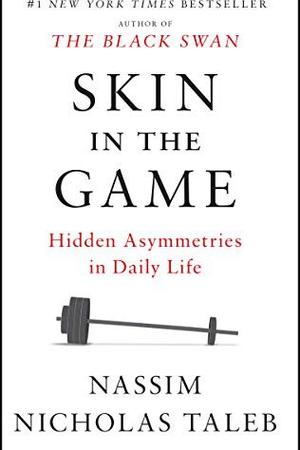
Skin in the Game by Nassim Nicholas Taleb: Summary & Notes
by Nassim Nicholas Taleb
In One Sentence
Asymmetry of risk—people making decisions without bearing consequences—is the root of fragility, unfairness, and bad judgment in systems from finance to politics.
Key Takeaways
- Skin in the game: bearing consequences of your decisions creates accountability
- Soul in the game: some things are worth more than money
- Intellectuals Yet Idiots: experts without skin in the game are dangerous
- The minority rule: intolerant minorities drive population-wide changes
- Symmetry in risk-taking is the foundation of ethics
- Don't tell me what you think, show me your portfolio
Summary
Skin in the Game is Nassim Nicholas Taleb’s (NNT) fifth book in what he calls the Incerto, and it’s the most digestible I’ve read thus far (having read all but Fooled by Randomness). This one focuses more on asymmetry (and symmetry) in everyday life, particularly on the matters of career, ethics, and life in general.
What does that mean? Basically, rules for how to detect if something is pseudo-science (scientism), rules for how you should endeavour to conduct yourself in your career in business, and mental models for thinking about risk in these categories and in life in general.
Having now read most of his books, part of the reason this was digestible was that I’m familiar with his general premises; I would recommend reading his other books first, but this one will tie them together. Highly recommend.
Who Should Read This Book
- Anyone making decisions that affect others
- People frustrated by unaccountable experts
- Investors and risk managers
- Readers of Taleb's other works
FAQ
What does "skin in the game" mean?
Having personal risk in the outcomes of your decisions. Taleb argues that systems become fragile and unfair when decision-makers are insulated from consequences. If a banker makes risky bets with no personal downside, bad decisions follow.
📖 Chapter-by-Chapter Breakdown
Click to expand the full detailed notes for every chapter →
📖 Chapter-by-Chapter Breakdown
Click to expand the full detailed notes for every chapter →
Favourite Quotes
- “…studying courage in textbooks doesn’t make you any more courageous than eating cow meat makes you bovine.”
- "What matters isn’t what a person has or doesn’t have; it is what he or she is afraid of losing.”
- “…action without talk supersedes talk without action.”
- "Alfonso X of Spain, nicknamed El Sabio, "the wise", had as a maxim: Burn old logs. Drink old wine. Read old books. Keep old friends.”
- "Never pay for complexity of presentation when all you need is results.”
- “If wealth is giving you fewer options instead of more (and more varied) options, you’re doing it wrong.”
- "Finally, when young people who want to help mankind come to me asking, "What should I do? I want to reduce poverty, save the world", and similar noble aspirations at the macro-level, my suggestion is:
- 1) Never engage in virtue signaling;
- 2) Never engage in rent-seeking;
- 3) You must start a business. Put yourself on the line, start a business
- Yes, take risk, and if you get rich (which is optional), spend your money generously on others. We need people to take (bounded) risks”
- "Reading a history book, without putting its events in perspective, offers a similar bias to reading an account of life in New York seen from an emergency room at Bellevue Hospital.”
- "Love without sacrifice is theft (Procrustes)”
- "Courage is when you sacrifice your own well-being for the sake of the survival of a layer higher than yours."
Notes
- Don’t tell me what you think, just tell me what’s in your portfolio; ie. actions over words
- Skin in the game is not just an incentive problem; it’s about upside and downside risk, and having symmetry in both.
- Decentralization lets small failures happen, and avoids macrobull***t (which is easier than microbull***t)
- Government/bureaucracy tends to remove skin in the game.
- Systems learn by removing parts, via negativa (ex: bad drivers die).
- The Silver Rule: Do not treat others the way you would not like them to treat you. This works on all scales: humans, societies, groups of societies, countries, etc.
- You do not want to win an argument; you want to win.
- Corollary: the doer wins by doing, not convincing.
- Scientism: using complicated mathematics when it’s not needed.
- Anything you do to optimize your work, cut some corners, or squeeze more efficiency out of it will eventually make you dislike it.
- Over time, the legal should converge to the ethical, not the other way around.
- What matters isn’t what a person has or doesn’t have; it is what he or she is afraid of losing.
- People whose survival depends on qualitative job assessments by someone of higher rank in an organization cannot be trusted for critical decisions.
- Inequality is okay as long as there is churn in who is unequal; ie. there must be a chance for people to move between classes, and not just one way.
- Phrased another way, no downside for some equals no upside for the rest.
- Those who start in public office should never be allowed to earn more than a set amount in the private sector afterwards.
- The reason for this is that there is an implicit bribe for those officials who play nice or complicate things while in office, and then help corporations navigate for a high salary afterwards.
- The Lindy rule: That which is Lindy is what ages in reverse, i.e., its life expectancy lengthens with time, conditional on survival.
- Ex: a book that has survived for 40 years can be expected to last many more, and this increases as the life of the book increases.
- You can define a free person precisely as someone whose fate is not centrally or directly dependent on peer assessment.
- In any activity, hidden details are only revealed via Lindy.
- In other words, judge success of a person or activity only by their survival.
- Society doesn’t advance with organized education, rather the level of formal education is a result of wealth.
- Take pictures of people to deter them from doing bad things.
- Do not criticize what people said, criticize what they meant.
- It is immoral to generalize unless your private actions reflect those generalizations.
- In other words, do as you say to do, or don’t say.
- You must survive above all else.
- You must survive to do science, but you do not need science to survive.
- Or: better to be safe than sorry.
- What is rational is that which allows for survival. That is it.
- Or: rationality is risk management.
- The probability of success from a collection of people do not apply to a single person if there is a chance of ruin.
- Ex: Your chance of winning at Russian roulette is 5/6 if using a standard cost-benefit analysis; but if you keep playing Russian roulette, you will end up dead. Your expected return can’t be computed.
- Repetition of exposure is critical in life: one cigarette has a positive cost-benefit analysis, but you still shouldn’t smoke; the risks are cumulative.
- It may seem like a one-off risk is reasonable, but the fallacy is that another one is reasonable; however, the probability of ruin approaches 1 as the number of exposures increases.
- Every single risk you take adds up to reduce your life expectancy.
- All risks are not equal; Ebola causes fewer deaths than drowning in the bathtub, but there is a non-zero risk of ruin from Ebola, while the risks of the number of people drowning in bathtubs going up significantly is near zero.
- Extremistan (Mandelbrotian) vs. Mediocristan (Gaussian); do not confuse the two.
- In a strategy that entails ruin, benefits never offset risks of ruin.
- Rationality is avoidance of systemic ruin.
You Might Also Like
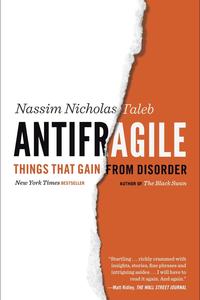
Antifragile by Nassim Nicholas Taleb
Nassim Nicholas Taleb
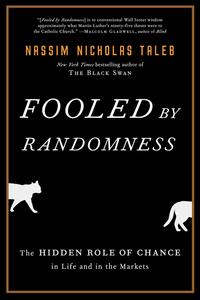
Fooled by Randomness by Nassim Nicholas Taleb
Nassim Nicholas Taleb
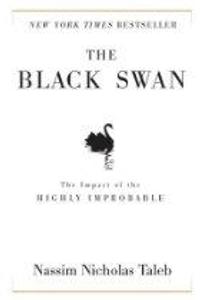
The Black Swan by Nassim Nicholas Taleb
Nassim Nicholas Taleb
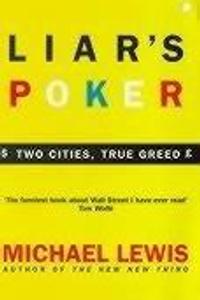
Liar's Poker by Michael Lewis
Michael Lewis
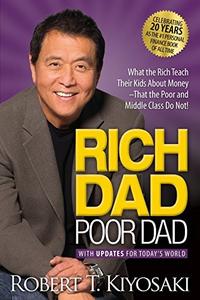
Rich Dad Poor Dad by Robert Kiyosaki
Robert T. Kiyosaki